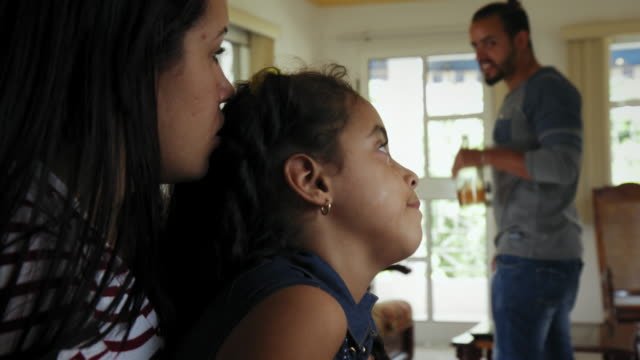On this page, we explain the main aims of SANCA:
Title: The Aims of the South African National Council on Alcoholism and Drug Dependence (SANCA): An Overview
SANCA, an abbreviation for the South African National Council on Alcoholism and Drug Dependence, is a non-profit organization that works to combat substance abuse in South Africa. SANCA has a wide range of objectives designed to tackle the issue of substance abuse from various angles, each of which contributes to the overall goal of promoting a healthy and productive society.
The Main Aims of SANCA
The main aims of SANCA (South African National Council on Alcoholism and Drug Dependence) are:
- Heightening public awareness about substance abuse.
- Enlightening both public and private sectors on substance abuse and appropriate preventative measures.
- Preventing and reducing chemical substance dependence through various strategies.
- Providing treatment and support for dependents and their families.
- Advocating for the restriction of availability of addictive substances.
- Offering specialized training and education programs for professionals in the field of addiction treatment and prevention.
- Undertaking and encouraging research on substance use disorders.
- Mobilizing and utilizing community resources in the fight against substance abuse.
- Empowering communities through prevention programs, to foster a culture that discourages substance abuse.
1. Heightening Public Awareness
One of the core aims of SANCA is to heighten public awareness about the dangers and impacts of substance abuse. This involves conducting campaigns, seminars, and workshops to educate the public about the risks associated with alcohol and drug dependence, as well as the availability of help for those struggling with these issues. For instance, SANCA has previously coordinated the “Drug-Free Youth” initiative, which seeks to inform young people about the dangers of drug use through various interactive and engaging methods.
2. Enlightening Public and Private Sectors
SANCA also works to enlighten both the public and private sectors about substance abuse. This involves reaching out to corporations, government institutions, and other organizations to educate them on the importance of adopting and enforcing policies that discourage substance abuse. One such initiative is the promotion of workplace drug policies and the implementation of employee assistance programs (EAPs) to help those struggling with addiction.
3. Prevention and Reduction of Chemical Substance Dependence
Preventing substance abuse before it starts and reducing existing dependencies are core parts of SANCA’s mission. They employ different strategies like community outreach programs, school-based education programs, and public campaigns to achieve this. An example is the “No-To-Nyaope” campaign, focusing on preventing and reducing dependence on Nyaope, a street drug common in South Africa.
4. Providing Treatment for Dependents and their Families
Providing treatment services for those struggling with substance abuse is another significant focus of SANCA. These services may include counselling, rehabilitation, detoxification, and aftercare programs. Family support is a crucial element of this aim, and SANCA often provides guidance and support for families dealing with a loved one’s addiction.
5. Advocacy for Restriction of Availability
SANCA advocates for stricter policies and regulations on the availability of addictive substances, working with lawmakers and regulatory bodies to limit access. This might include supporting laws that restrict the sale of alcohol to minors or lobbying for greater controls on prescription drugs to prevent misuse.
6. Offering Specialised Training and Education Programs
SANCA provides training and education programs for professionals in the field of addiction treatment and prevention. These programs aim to equip individuals with the skills and knowledge to effectively address and manage substance abuse in various settings. This could involve training health care providers in the early detection of substance use disorders or providing teachers with strategies to educate students about the risks of drug use.
7. Undertaking and Encouraging Research
Research is crucial to understanding the complexities of substance abuse and addiction. SANCA supports this through conducting its own studies and encouraging other research efforts on substance use disorders. The findings from these research initiatives help to inform SANCA’s strategies and programs and contribute to the global understanding of addiction.
8. Mobilising and Utilising Community Resources
SANCA recognises the power of the community in tackling substance abuse. The organization works to mobilise and utilise community resources, fostering community involvement in prevention programs, support groups, and local initiatives. An example of this might be the creation of local volunteer groups or working with community leaders to develop substance abuse prevention programs tailored to their community’s specific needs.
9. Empowering Communities through Prevention Programs
Last but not least, SANCA aims to empower communities through prevention programs. They believe that by providing communities with the knowledge and tools to prevent substance abuse, they can create an environment that discourages substance use and supports those who are in recovery. These programs could involve community-wide education campaigns, local support services, and the promotion of healthy lifestyle choices.
Also Read:
- The Main Aims of SANCA
- Ways in Which the Youth Could Bring About Awareness on the Negative Effects of Drug Abuse
- Available Support for People Who Abuse Substances in South Africa
- The Steps to Follow in order to Admit a Person to be Rehabilitated
Conclusion:
SANCA’s work is a multi-faceted approach to the complex issue of substance abuse. By tackling the problem from several different angles, they aim to achieve a society free of substance abuse, ultimately promoting a healthier and more productive South Africa.





